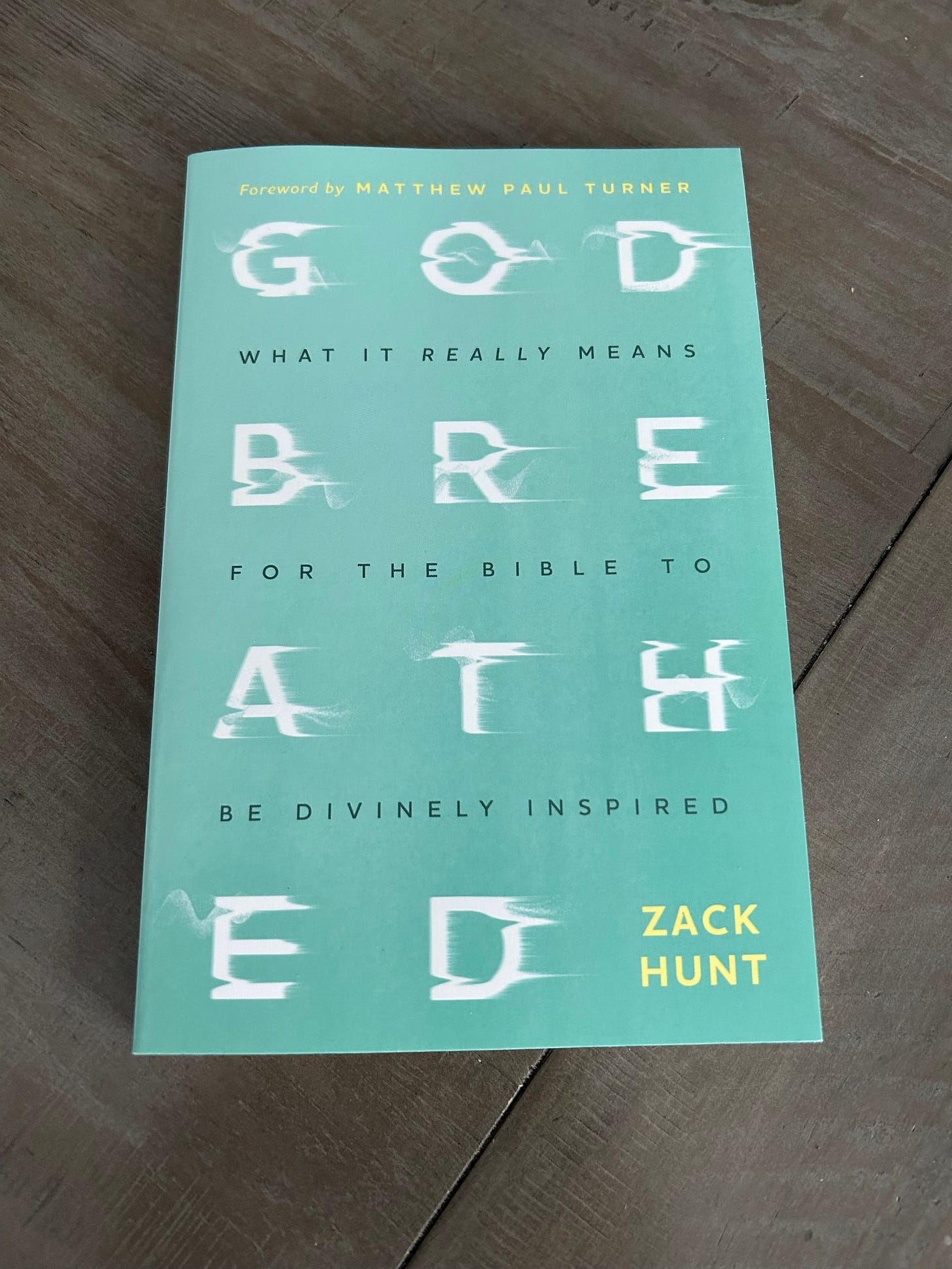Godbreathed
A Book Review
In his latest book, Godbreathed: What it Really Means for the Bible to be Inspired Zack Hunt takes us on a journey to understand the meaning and purpose of the inspiration of scripture. This journey is firmly planted within both orthodox Christianity and the Wesleyan-Holiness context Zack Hunt has been within. But it will challenge those who have heard scripture described and taught from a more fundamentalist or Reformed perspective; all within a lighthearted and accessible narrative.
Do not skip the early front matter “A Word About Words” as it helps to understand terminology and choices that Hunt makes throughout the book. This gives a solid foundation for engaging the text as we are led through the journey.
We are given stories and anecdotes to explain the complex ideas and doctrines that Hunt is dealing with in Godbreathed and those help to make the shock some may feel more palatable. Of course, many have already trod this same path and will find comfort that Hunt’s description of scripture is the majority understanding of Christianity throughout its history. In discussing how the Bible becomes an idol to Christians, Hunt deals with what he calls the “problematic assumption that the Bible and God are interchangeable.” We are then introduced to the concept of inspiration being more important than the printed words in the Bible. As we are reminded that John 1:1–4 is describing the Logos of God (Word of God) as Jesus and not the scriptures which point to the Trinitarian God. Placing the importance upon the written word obscures the truth of the living Word in Jesus. the former leads to us calcifying our interpretations over the power of the Spirit of God to guide us into interpretation and truth.
Hunt relies heavily on the historical understandings of scripture within the Church catholic as he invites us into an understanding of scripture which allows it to be the invitation into relationship with God rather than a propositional set of truths to be obeyed outside of relationship. It is a significant change for many that will free them to experience scripture in its true power and beauty. As the historic is weaved throughout Hunt’s excellent narrative, we are experiencing a journey of creating a hermeneutic (interpretive lens) based upon the nature and purpose of scripture rather than a rigid framework of propositions.
We are eventually led through a discussion of a hermeneutical approach to subjects, and Hunt does a good job of connecting the concepts of the book with that discussion. We may not all agree with his conclusions in the interpretive section, but it is cogent and well thought and presented.
Ultimately, Hunt asks if we can make something we treat with certitude and closed understandings and allow metaphorical dry bones to live. Pick this book up and allow it to challenge and confront your ideas of scripture. I guarantee if you approach it openly, it can free scripture from a valley of dry bones into a story of a living and active God of relationship.



